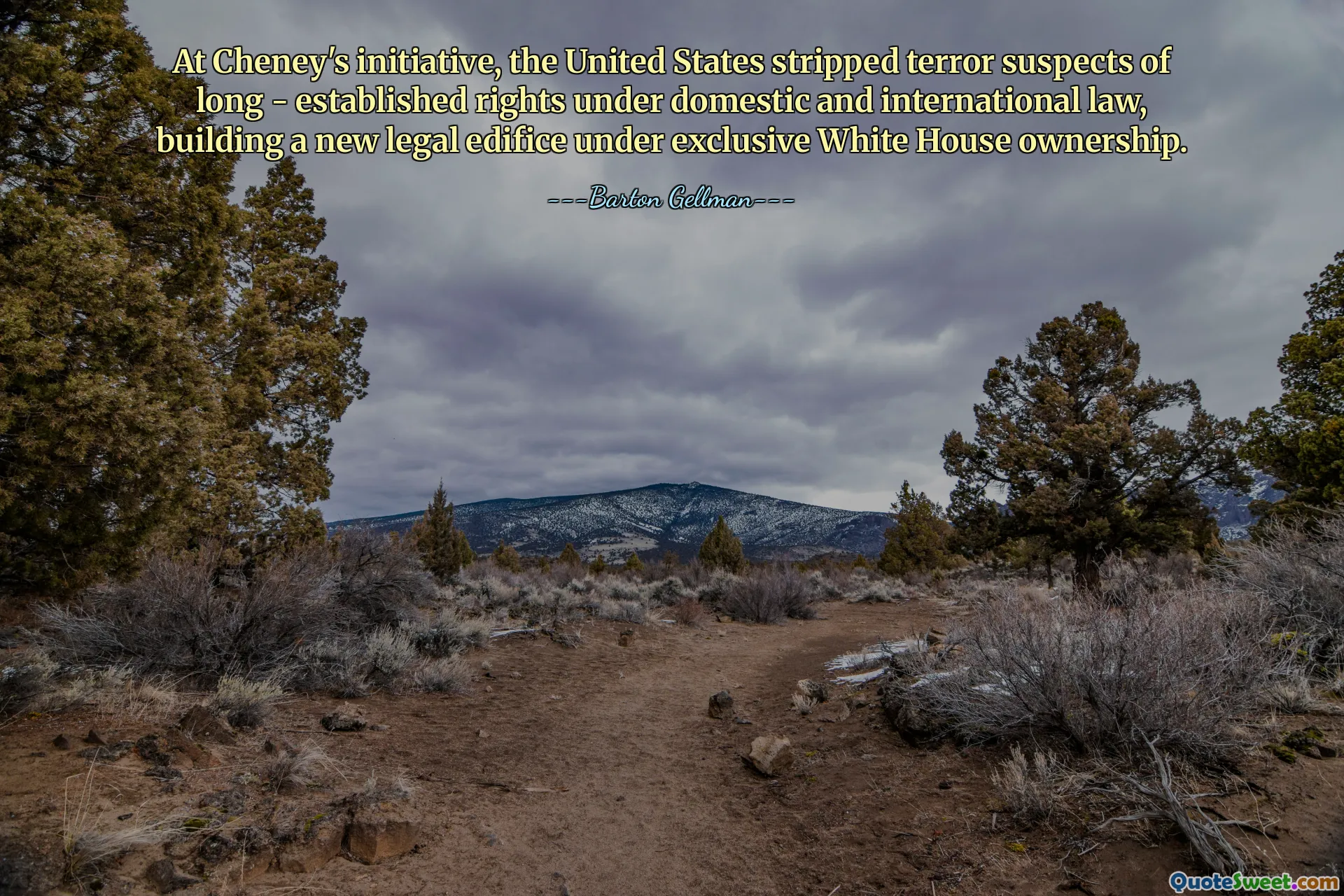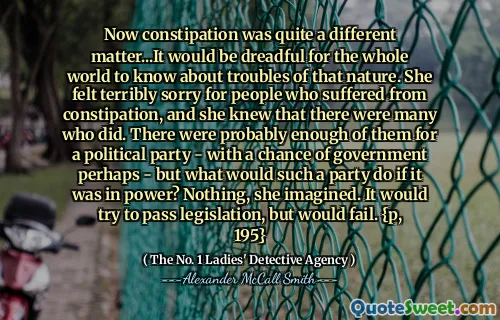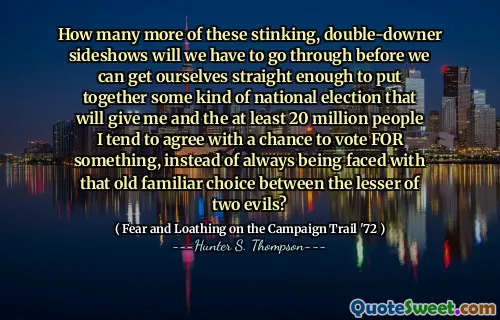
At Cheney's initiative, the United States stripped terror suspects of long - established rights under domestic and international law, building a new legal edifice under exclusive White House ownership.
The quote highlights a significant shift in the legal landscape concerning national security and human rights during the tenure of Vice President Dick Cheney. It reflects how decisions made at the highest levels of government can fundamentally alter established legal standards, often in the name of security and counterterrorism efforts. The move to revoke historic rights of terror suspects means creating a legal framework that prioritizes executive authority over usual legal protections, resulting in a centralized legal edifice that is under White House control. This approach raises critical questions about the balance of power, checks and balances, and the potential for abuse when legal standards are tailored to fit political objectives. From a broader perspective, this shift reveals a tension between security concerns and adherence to both domestic and international legal commitments that safeguard individual rights. Such transformations can erode trust in judicial processes and foster a climate where executive power operates with diminished accountability. Moreover, these changes may have long-lasting ramifications on how justice, human rights, and national security coexist in practice. It demonstrates an evolution—sometimes a departure—from traditional legal norms toward a more centralized, and possibly unchecked, form of authority. Understanding this context is essential in evaluating the implications of such legal shifts, as they influence not only the immediate political landscape but also set precedents for future governance in issues of security and civil liberties. Overall, this quote encapsulates a pivotal moment where legal boundaries were redefined in a manner that reflects the complex interplay of security, legality, and executive power.











